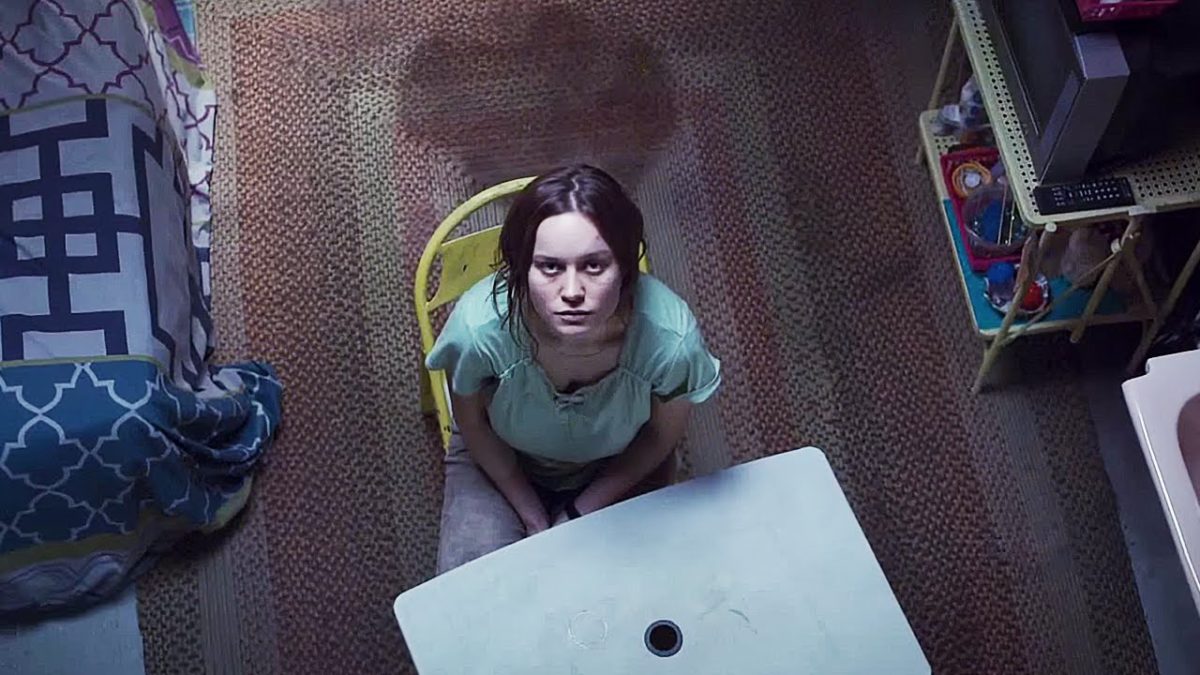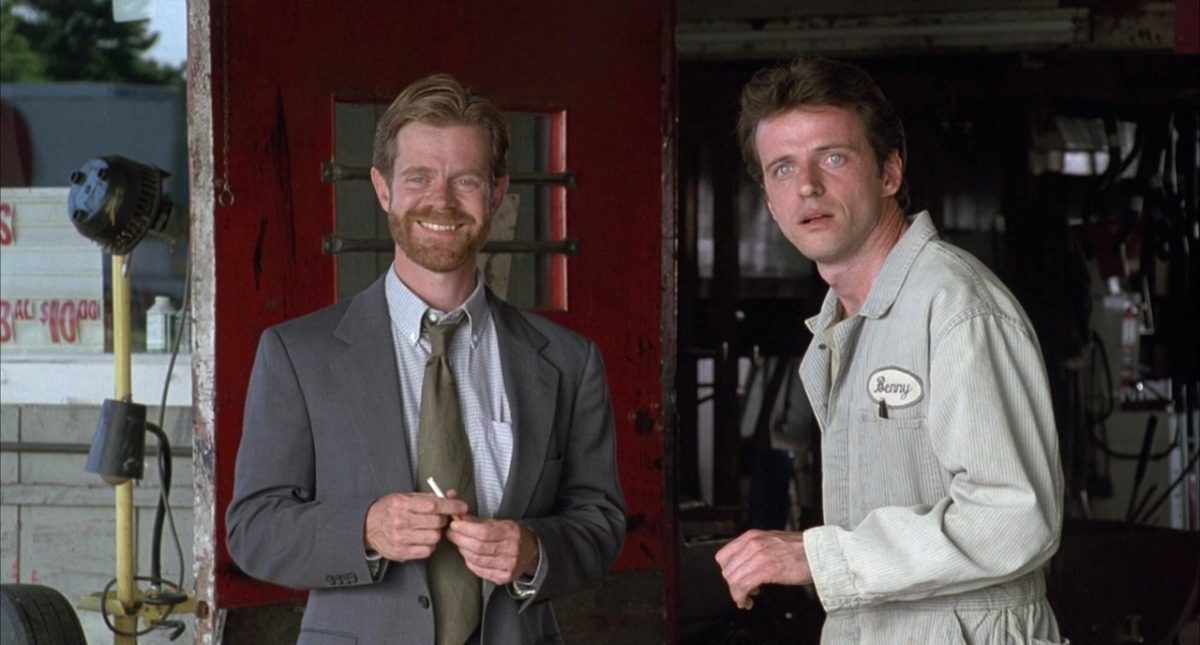After seeing Room yesterday, I am struck by its range. I expected it to be emotionally anguishing, and it was. But I did not expect to find a film so absorbing, thrilling, and redemptive. This film should be experienced by anyone who considers themselves a fan of the medium. If you are not familiar with the plot of Emma Donoghue’s bestselling book on which it is based, it is probably better that way. This is not to say that the novel isn’t fantastic, but I haven’t read it and am not reviewing it. I just believe that this is a film that should be approached with as few preconceptions as possible. I would think that the screenplay is faithful to the novel seeing that Donoghue wrote the screen adaptation and Lenny Abrahamson, best known before this film for taking the helm on last years’ Frank, directs with a deft touch and creativity. However, what ultimately sells the movie are the two central performances by Brie Larson and young Jacob Tremblay, who is one of the most unforgettable child actors you will ever see.
However, what ultimately sells the movie are the two central performances by Brie Larson and young Jacob Tremblay, who is one of the most unforgettable child actors you will ever see.
Larson, I have to confess, I have previously overlooked as superfluous, however she is stunning here in a role that requires her to be victim and rock, mouse and lioness, often at the same time. As terrific as Larson is, it’s Tremblay who emerges as the film’s true star. The adorable youngster proves to be both charming and heartbreaking as he charts Jack’s plastic transformation from innocent ignorance to the often painful struggle of experience.
Room is a film about liberation hidden inside a tale of entrapment. I don’t want to share too much, but Jack (Tremblay) lives with Ma (Larson) in Room. Notice the lack of a definite article, it is missing because Room is the only place on Earth the 5-year-old has ever known. Room, we come to learn, is nothing more than a dingy tool-shed supplied with the bare necessities (a single bed where they both sleep, a toilet, a filthy rug, and an unreachable skylight). This is where Jack and Ma go through their daily regimen of washing, exercising, reading, eating, etc. At night, Jack is sent to the wardrobe while a nearly mythical monster of a man they call Old Nick unlocks the door that keeps Room locked up tight and proceeds to make strange noises with Ma on the creaky bed.
Room, we come to learn, is nothing more than a dingy tool-shed supplied with the bare necessities (a single bed where they both sleep, a toilet, a filthy rug, and an unreachable skylight). This is where Jack and Ma go through their daily regimen of washing, exercising, reading, eating, etc. At night, Jack is sent to the wardrobe while a nearly mythical monster of a man they call Old Nick unlocks the door that keeps Room locked up tight and proceeds to make strange noises with Ma on the creaky bed.
Jack knows of no world outside of Room, and all the inanimate objects within are his friends and playmates. “Good morning, lamp”; “good morning, sink,” he cheerfully greets each object daily. As they celebrate Jack’s fifth birthday, Ma decides that he’s now old enough to learn about the world outside of Room. She tells him how she was stolen by Old Nick when she was 17 and how she used to be a little girl named Joy with parents who live in a house, but Room is the only world she has known for the past 7 years. Viewers quickly grasp what Jack cannot. He does not like being forced to accept that there are other human beings and animals in a world that is real and not some imaginary images they see on the ancient television inside Room. I don’t think it is any coincidence that Ma’s actual name is Joy because despite the tremendously dark circumstances, joy sits just below the surface.
I don’t think it is any coincidence that Ma’s actual name is Joy because despite the tremendously dark circumstances, joy sits just below the surface.
The second half of the movie introduces more characters and a whole new set of psychological dimensions. You should experience it for yourself rather than have me describe it here in inadequate terms. This second half is stronger in its emotional pull as we see a tremendous role reversal and young Tremblay steps into the spotlight even further. Room is ultimately a painful, conflicting, and gut-wrenching tale which is tremendously uncomfortable yet altogether enjoyable as we are reminded in a beautiful way the resilience and fullness of life.



 I am six days into the 30 Day Movie Challenge and I have remained faithful. But today presents a couple of obstacles. First, it is Wednesday and this is the one day a week that I take my kids to school. I choose Wednesday because that is Chapel day and I can sit with them as they sing and dance. It reminds me of an opening rally at VBS. I am writing this as I wait for chapel to begin, but this will delay me from my blogging time until about 10am. Add to that the very obscure topic for today, and it really does present a challenge.
I am six days into the 30 Day Movie Challenge and I have remained faithful. But today presents a couple of obstacles. First, it is Wednesday and this is the one day a week that I take my kids to school. I choose Wednesday because that is Chapel day and I can sit with them as they sing and dance. It reminds me of an opening rally at VBS. I am writing this as I wait for chapel to begin, but this will delay me from my blogging time until about 10am. Add to that the very obscure topic for today, and it really does present a challenge. I Know My Name is Steven was one that looked interesting, also
I Know My Name is Steven was one that looked interesting, also  The story-lines involving Porter’s customers and how their lives were changed by him are certainly inspiring, but one must also wonder if they actually did happen. I was most intrigued by the story-line involving the gay couple and an obvious insinuation that one of their friends might have been afflicted with the AIDS virus. This was never resolved and seemed a little misplaced. Also, what is probably the films most quotable line, “God created us all, Shelly. He doesn’t make mistakes,” is in relation to this couple. The fact that this little bit of tolerance propaganda was tagged on kept this from being a really great film. But it doesn’t keep Door to Door from being a really an inspirational story that I still recommended for those who are sick movies about things getting blown up or people getting peppered with bullets.
The story-lines involving Porter’s customers and how their lives were changed by him are certainly inspiring, but one must also wonder if they actually did happen. I was most intrigued by the story-line involving the gay couple and an obvious insinuation that one of their friends might have been afflicted with the AIDS virus. This was never resolved and seemed a little misplaced. Also, what is probably the films most quotable line, “God created us all, Shelly. He doesn’t make mistakes,” is in relation to this couple. The fact that this little bit of tolerance propaganda was tagged on kept this from being a really great film. But it doesn’t keep Door to Door from being a really an inspirational story that I still recommended for those who are sick movies about things getting blown up or people getting peppered with bullets.